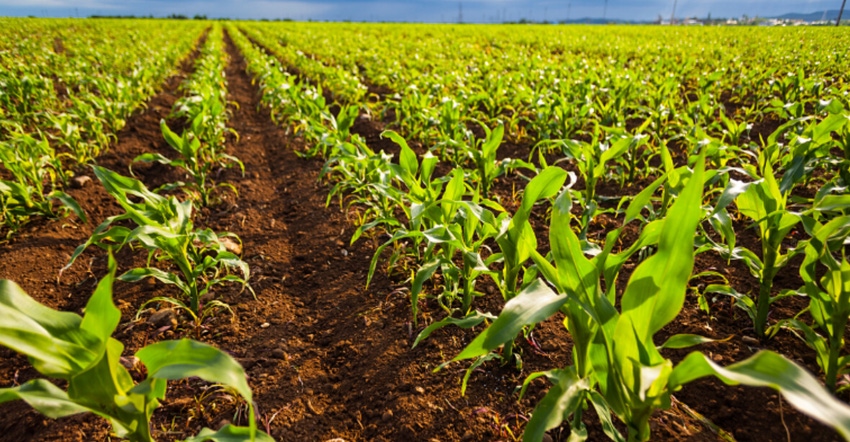February 1, 2022

Sponsored Content
Lucrative Low Carbon Fuel Standard (LCFS) markets (namely California) credit greenhouse gas (GHG) reductions at ethanol facilities, but do not yet credit reductions achieved through farmer adoption of agriculture practices that reduce carbon intensity in feedstock production such as tillage, nutrient management, and where appropriate, cover crops.
Existing state LCFS market regulators want additional quantification and verification of agricultural practices than are currently available to grant access to these valuable credits.
As states and Congress consider enacting LCFS policies, discussions on how to treat on-farm carbon benefits continue, but policymakers and environmental stakeholders at the state, regional and national levels remain uncertain about including on-farm carbon accounting.
The Department of Energy's Argonne National Laboratory found that changing tillage practices and incorporating cover crops could result in a $279/acre premium in the California LCFS program if these carbon benefits were accepted. Argonne noted the need for improved quantification and verification as the key roadblock.
To address this roadblock and perceived uncertainty from stakeholders, the American Coalition for Ethanol (ACE) leveraged authority from the 2018 Farm Bill to partner with stakeholders through USDA's Regional Conservation Partnership Program (RCPP) to develop a project that demonstrates on-the-ground conservation and climate benefits.
In September 2021, USDA approved the $7.5 million RCPP project led by ACE and involving the South Dakota Corn Growers Association, Dakota Ethanol, LLC, South Dakota State University, Sandia National Laboratory, and Cultivating Conservation.
Under this first-of-its-kind project, the partnership will provide over $5 million in USDA assistance to farmers who adopt climate-smart practices in supplying South Dakota-based Dakota Ethanol. Farmers in Brookings, Kingsbury, Lake, Miner, McCook, Minnehaha, and Moody counties are eligible.
The partnership will collect periodic soil samples to quantify GHG benefits in the ethanol company's grain-shed. This data will be analyzed to validate the existing soil models to ensure accurate predictions related to changes in crop productivity, soil organic carbon, and GHG emissions.
The project will provide an undisputed quantification of the GHG benefits from changes in farming practices in the ethanol company's grain-shed. This will help Dakota Ethanol seek a pathway to existing state LCFS markets based on on-farm practices. The analysis will further validate existing soil models that can be used by neighboring farmers and ethanol facilities when seeking their own pathway approval. The results will help illuminate the path forward for inclusion of on-farm practices in new state and federal LCFS programs which will increase ethanol demand.
Learn more at ethanol.org/usda-rcpp.
About the Author(s)
You May Also Like




